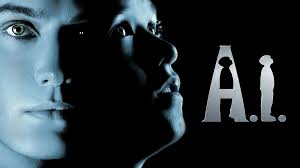When I was young, if someone mentioned artificial intelligence, people thought of this:
this:
or this:
People were scared of any mention of AI and robots because they immediately imagined these things taking over the world and overthrowing humanity.
Who knew artificial intelligence would actually look a lot more like this:
this:
or even this:
That last one is a from a chat with ChatGPT, a natural language processing (NLP) AI Chatbot, and some people are just as afraid of it and other generative artificial intelligence as they once were about evil robots.
You've probably heard that AI Chatbots like ChatGPT will eventually take your job. And as a writer, they are particularly worrisome because they can write anything you tell them to, including entire novels and screenplays. The implication is that someday, we won't need human writers for written media at all, and paid human writers will be pushed out of the market for the much cheaper computerized version.
So am I worried ChatGPT will take my job?
My initial response is no. Chatbots are an excellent tool. Look how my simple question above was answered in seconds by ChatGPT, meaning I didn't have to search through Google to find every possible example of AI we use on a daily basis, or even open up an article to see if it had what I was looking for. Chatbots are also useful for writing code, as they can immediately give you the code you need in the language you want for a specific task. And, yes, they can get you started on writing, and even help you brainstorm ideas.
But innovators they are not.
Everything coming out of artificial intelligence has first been put there by humans. The way Chatbots work is by looking at what already exists, finding patterns, and then spitting out text based on those patterns. A Chatbot cannot come up with a new story, it can only tell you stories based on stories that have come before. You might argue that's what all stories are, just reusing and rehashing old tropes, putting twists on genres that already exist.
But that's the thing. Humans can surprise us with those twists. Humans make new stories by taking well-known archetypes and turning them on their heads. A Chatbot doesn't know how to do that. They can only look at what came before and repeat it. Only a human can look at what came before and change it.
So none the stories and novels and screenplays that come out of Chatbots are going to be innovative. At some point, without new input, all of these stories will be the same. Sure, some people don't mind that, but I think for the most part people will prefer to be surprised by human tales.
With that said, there is the smallest part of me that worries what will happen if that percentage of people who prefer innovation is lower than I think. If the majority of humanity don't mind consuming the same stories and tropes and archetypes again and again, especially if the cost is low, then eventually human writers probably will give up and use AI to make their books as well. And then all our media will be a boring, beige, barely entertaining pool of repetition.
So here's my call to action. If you don't want that happening, you need to send a message to the people who produce media. Let them know that you prefer to be surprised. Read and consume mostly human-generated media that is innovative and new, and they will get the hint. That's not to say all AI-generated media should be avoided at all costs, but money talks, and if the money is leaning in a certain direction, that's the direction producers will lean toward as well.
Meanwhile, as a writer, I still think ChatGPT can be a good tool to get you started. If you are stuck, or don't know what to do next, a Chatbot can write a few paragraphs for you and you can either edit that or take a few ideas from it. ChatGPT can help you do research on topics you're writing about. Try it out and see how it can help you. But remember, what it spits out is only as good as what humanity has already given it, and, well, sometimes humanity is dumb. Also, it can't reliably give you sources for what it tells you. So, take whatever it says with a grain of salt.






No comments:
Post a Comment